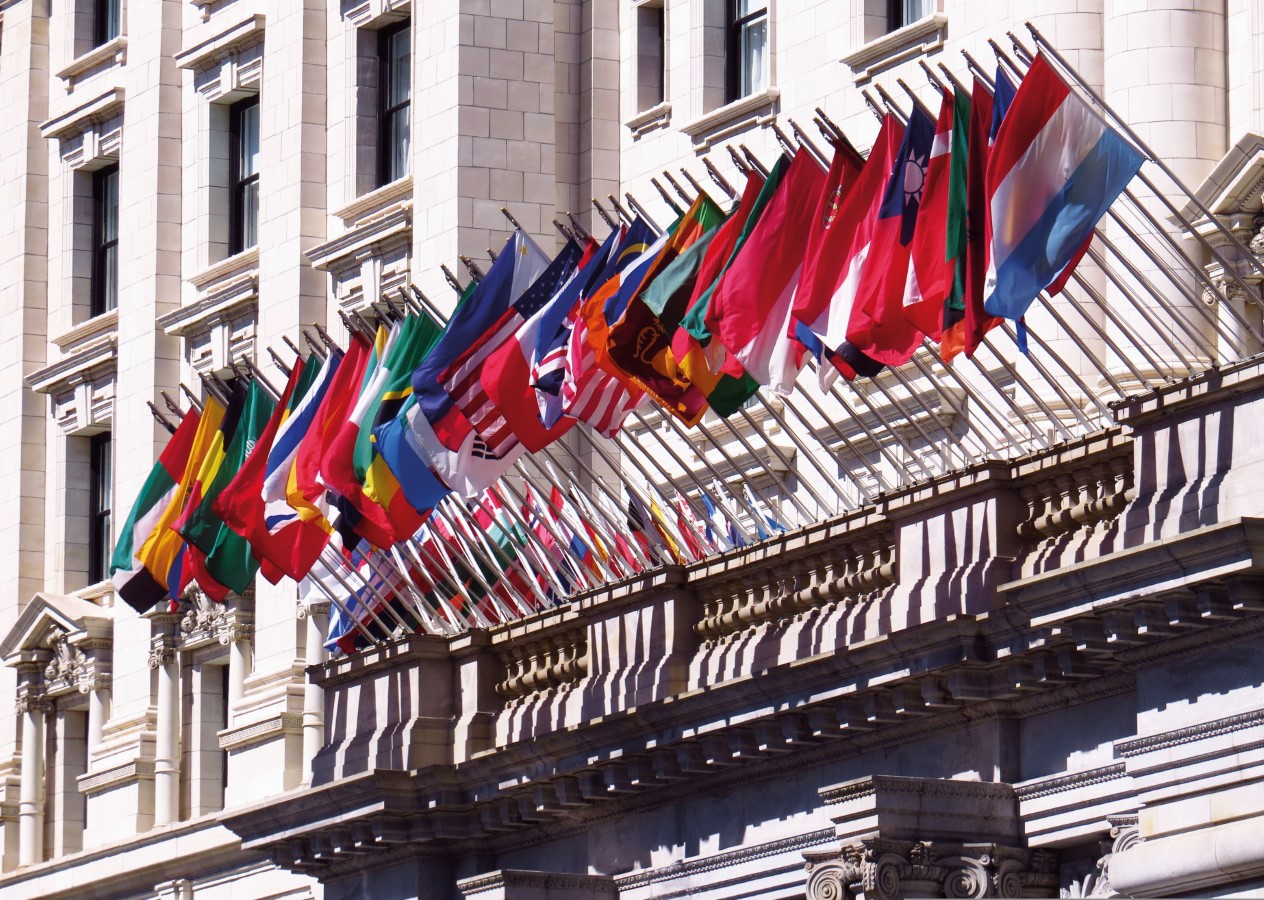The value, past and future of the MCAA: An interview with Claire Morel - MCAA Magazine March 2024
The MCAA was legally established on 7 February 2014. Hence, this year marks the 10th anniversary of our association. MCAA Board member Gian Maria Greco interviews Claire Morel, Head of the Marie Skłodowska-Curie Actions Unit at the European Commission.
Claire Morel is the Head of Unit in charge of the Marie Skłodowska-Curie Actions for the mobility and training of researchers including the development of excellent doctoral programmes, at the European Commission’s Directorate General (DG) for Education, Culture, Youth and Sport. Before that, she was the Head of Unit for international cooperation in the same DG, with a particular focus on the international dimension of the Erasmus+ programme and international policy dialogues in higher education and youth issues with various partners of the EU in the world.

Can you share your thoughts on the significance of the Marie Curie Alumni Association as it celebrates its 10th anniversary?
I was not working for the Marie Skłodowska-Curie Actions (MSCA) when the Marie Curie Alumni Association (MCAA) was set up nor during the first years of its operations, but what I have witnessed since I joined the unit in charge of the MSCA a few years ago, is that the MCAA has brought a clear added value to the MSCA programme by increasing its visibility within Europe and beyond, and by demonstrating its value. Not every European programme can proudly boast to keep alive such a large international community of bright researchers who, despite their busy career, engage in volunteering and dedicate time and energy to make the association grow. It clearly shows that the Alumni want to contribute back to a community that has helped them to develop in their professional and personal lives.
And it means a lot for the programme and for all the colleagues in the European Commission and the Research Executive Agency who have worked over the years to develop and manage the MSCA. The value of the MCAA lies in its talents, in its capacity to mobilise a large community of researchers, who have benefited from the programme and continue to collaborate on a large variety of topics across disciplines and geographical boundaries. This community has also been providing a sense of belonging, which is crucial for researchers at various stages of their careers. The international coverage and the network of country chapters give us access to regional and national networks of research and innovation, which is principles of MSCA and is doing a magnificent job in protecting, promoting and refining those principles.
The MCAA has increased MSCA’s visibility by demonstrating its value.
How has the MCAA contributed to the objectives and success of the MSCA programme? What has been MCAA’s most impactful achievement?
Having managed to unite over 21.000 members is an achievement in itself. It demonstrates the value of the association. The MCAA Annual Conference has become a flagship event that brings together not only the Alumni members but also world-class experts, researchers, policymakers, policy advisors, academic leaders, and experts from the non-academic sector, as well as research managers. During the priceless. The MCAA also provides the European Commission with invaluable feedback not only on the MSCA programme and R&I policies but on EU policies across the board.

Above all, and on such an important anniversary, I want to recall that the MCAA embodies the values and conference, vibrant discussions take place around different themes that contribute to the development of science, scientists, and the research ecosystems as a whole.
The MCAA has therefore become an important stakeholder in research and innovation policies at EU level, and its viewpoints, inputs, and contributions are highly valued in shaping European policies, not only at the level of the MSCA programme, but much more broadly. The Alumni association has for example played a key role in the reform of researchers’ assessment, in shaping science diplomacy, as co-chair of the EU Science Diplomacy alliance last year. MCAA representatives actively participate in the ERA Forum, and are supporting the Manifesto for Early Career Researchers while encouraging its members to endorse and disseminate it. But I cannot draw an exhaustive list of all MCAA’s achievements, as it contributes to many other initiatives at EU level.
The mere fact that the association has grown into a recognised and active Alumni community and is consulted on different European initiatives is a testimony of the programme’s success. The international visibility of the association, its successful participation in many European R&I projects and networks contribute to valorising MSCA’s positive achievements.
Through the results of the large MCAA surveys, through our participation in the association’s annual conference, we receive valuable inputs from the Alumni, that help us shape and improve the MSCA programme and the related policies. These exchanges enable us to better understand how our actions to support researchers at all stages of their careers are functioning, what works well, what needs to be improved, and what else needs to be done. The MCAA also supports us in disseminating information on our initiatives (new publications, MSCA calls, and any initiative relevant to the network). MCAA Annual Conferences, in which we regularly participate, enable us to have a direct engagement on policy developments with the Alumni and key stakeholders in research and innovation.

Could you elaborate on the role the MCAA plays in supporting and connecting MSCA fellowship Alumni?
The MCAA plays a unique role in bringing past and present MSCA fellows under its umbrella. It is important for us to keep contact with current and former fellows and without the association, we would not be able to reach out to them, and receive feedback on our actions and policies. If the association inspires and attracts so many members, it is certainly because the type of support and services that it is offering to MSCA fellows is attractive and unique: opportunities for professional development, career support, training sessions, conferences, skills enhancement, advocacy, updates on the latest research trends, insights into various scientific fields, etc. This represents a wide range of invaluable opportunities.
Looking ahead, what are your aspirations for the future development and growth of the MCAA over the next 10 years?
I hope to see MCAA grow as an even more impactful association continuing to serve as a voice for researchers in Europe and beyond, advocating for their interests.
Last year we changed the way we have been supporting the association, moving from support through a service provider, to a direct grant to the MCAA. This should allow the association to take its destiny in its own hands, without the involvement of an intermediary organisation. This is an important step that provides the association with more independence and an opportunity to further professionalise its action and expand its scope.
I see the role of the MCAA as an impactful liaison body that has direct access to an active research and innovation community both in the academic and non-academic sectors and can relay its messages and positions directly to European policy makers.
MCAA: a voice for researchers in Europe and beyond.
An area where the association could potentially develop is by encouraging a more active participation from a larger number of members, from different regions of the world. Mentorship opportunities could also be further developed, allowing experienced Alumni to guide and support less experienced members, or students interested in starting a doctoral programme. Mentorship is a valuable resource for personal and professional growth. Developing stronger relations with other European alumni networks such as the association of ERC grantees or the Erasmus Student Network could also be a priority for the future, especially at a time when reflection on the future orientation of these programmes is starting to be debated.
Finally, how can the MCAA continue to support and synergise with the objectives and activities of the MSCA programme in the coming 10 years?
In the coming years I would like to strengthen even more our collaboration with the MCAA and create more effective communication and synergy with the MSCA unit in the European Commission, to be able to receive more effective and timely feedback about the MSCA programme and more broadly about policies related to researchers’ careers. For example, this could include creating stronger links between the MCAA working groups and country chapters and the Commission’s work on MSCA and more generally in the field of R&I.
Thanks to its large network and wealth of expertise, the MCAA has an essential role to play in providing feedback, recommendations and advice to the European Commission and other institutions on MSCA and MSCA-related issues and policy developments. This includes taking part in open consultations launched by the European Commission, policy debates, or European events, and creating even more synergies between the MSCA and the MCAA.
Gian Maria Greco
MCAA Board Member
gianmaria.greco@ mariecuriealumni.eu
Twitter @GianMariaGreco
ORCID 0000-0002-8714-6349
LinkedIn gianmariagreco